Description
ABSTRACT
An Appraisal of the Investor’s Right to Cost-Reflective Electricity Tariffs Under Nigerian Law
Christopher M Lakpini* and Kayode I Adam**
ABSTRACT
Section 76 (1) (a) & (b) of the Electric Power Sector Reform Act subjects the activities of generation, transmission and distribution companies to tariff regulation. This provision has in effect disenfranchised electricity companies of the right to determine the prices of electricity on their own. By virtue of the above provision the Nigerian government regulates electricity prices. This power to regulate electricity prices is vested in the Nigerian Electricity Regulatory Commission (NERC) by virtue of section 76 (2) of the Electric Power Sector Reform Act. The question that arises from the above provision of the Electric Power Sector Reform Act is to what extent is an investor protected against the application of tariff methodologies which would limit the investor’s ability to recover cost and make a reasonable return on investment? Since the power to determine tariffs are principally in the hand of government appointees (who serve as commissioners at NERC), there is always the possibility of government interference in the pricing of electricity supply. This interference may be readily exercised in favour of members of the public who have the power of determining the fate of any government during elections. Therefore, it may be in the interest of government to ensure that prices are kept low even when the cost of production and supply is increasing, leaving the investor to suffer huge losses. In order to answer this question, this work will consider whether the limitations placed on the State in respect of its power to expropriate private property under the Nigerian Constitution and the Nigerian Investment Promotion Commission Act creates a standard of protection below which NERC cannot fall below in the exercise of its powers to determine electricity tariffs. In the course of this paper, the authors shall also examine similar provisions under the jurisprudence of the United States of America in respect of the nature and the limitations of the power of the State to set tariffs with a view to determine the extent to which such positions could be accommodated under Nigerian law.
Keywords: Investor Protection, Expropriation, Due Process, Electricity sector, Cost Reflective Tariffs.
INTRODUCTION
Prior to the privatization reform, electricity supply was considered to be a social service1 and therefore subject to government subsidy.2 Government subsidies ensured that electricity consumers were supplied electricity at tariffs which were significantly low.
* LL.B, LL.M. Lecturer, College of Law, Bowen University, Iwo, Nigeria.
** PhD, BL. Lecturer, Faculty of Law, University of Ilorin, Nigeria.
- Obindah Gershon and Alex Ezurum, ‘Energy Sector Governance and Cost Reflective Pricing in West Africa’ ( UNECA-AfDB-UNDP 12th African Economic Conference, Addis Ababa, 4 – 6 December 2017) 3 accessed 14 April 2020.
- G Nwangwu, ‘Quest for Cost-Reflective Electricity Tariff in Nigeria: Managing the conflict between Politics and Economics’ (2019) 10 Nnamdi Azikiwe University Journal of International Law and Jurisprudence 158; Gershon and Ezurum (n 1).

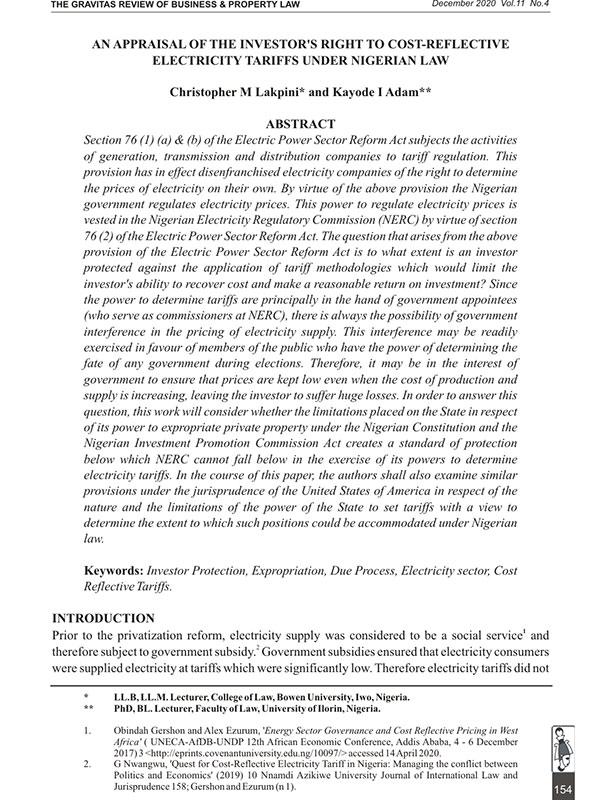
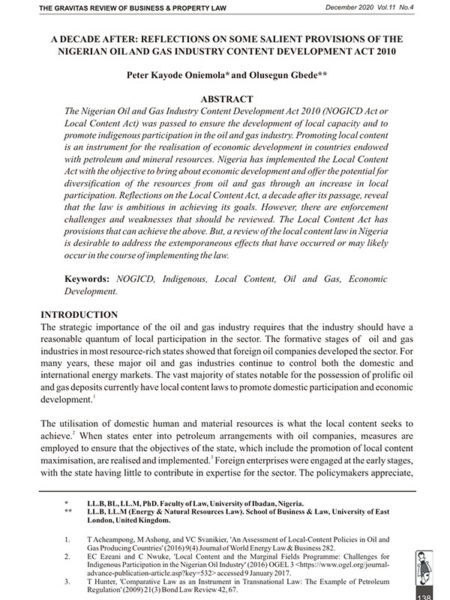
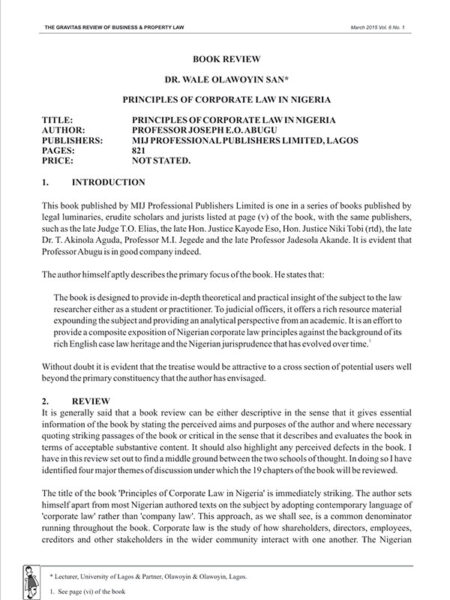
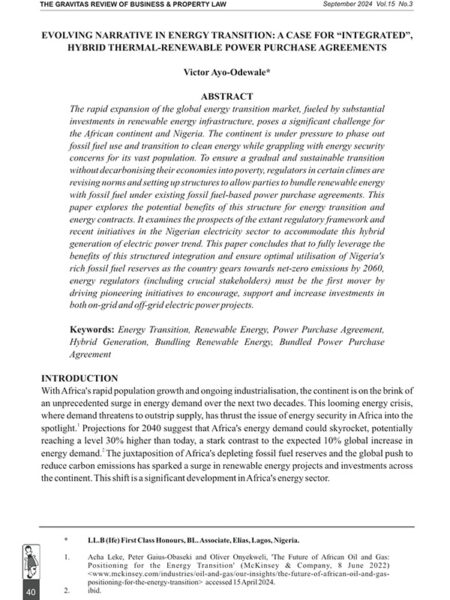
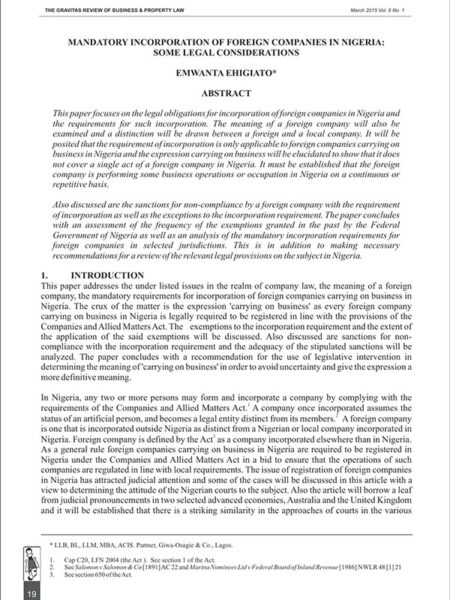


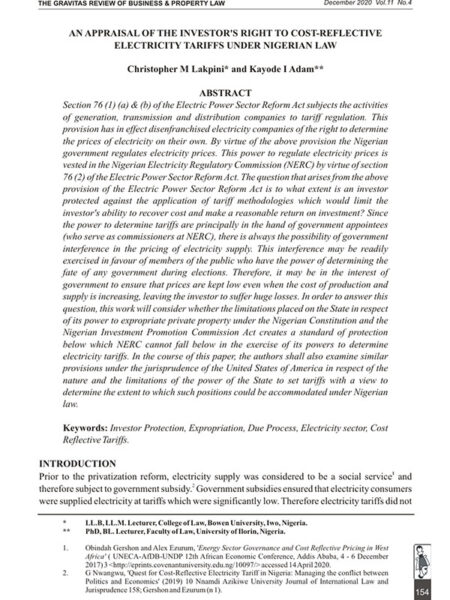
Reviews
There are no reviews yet.